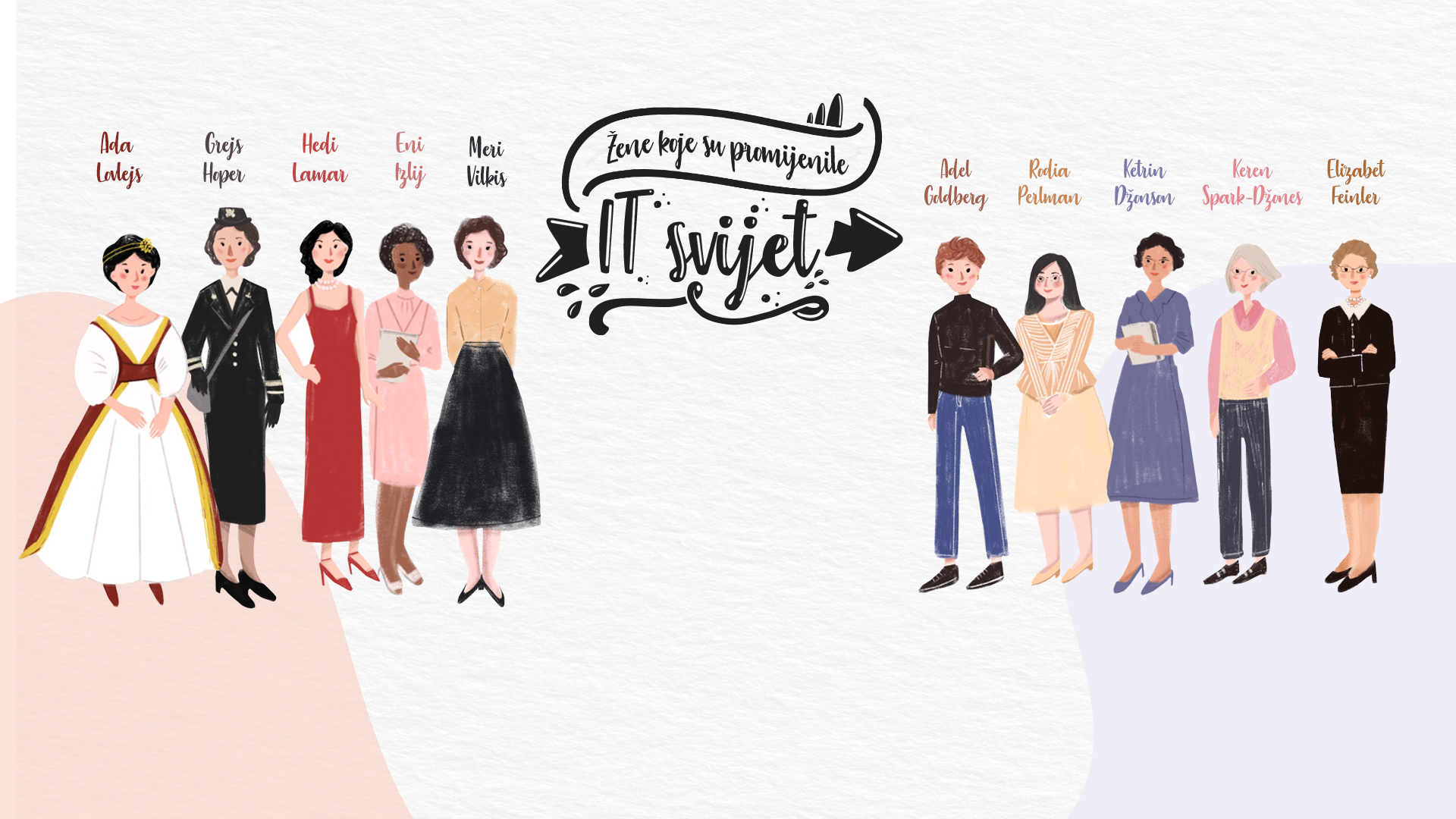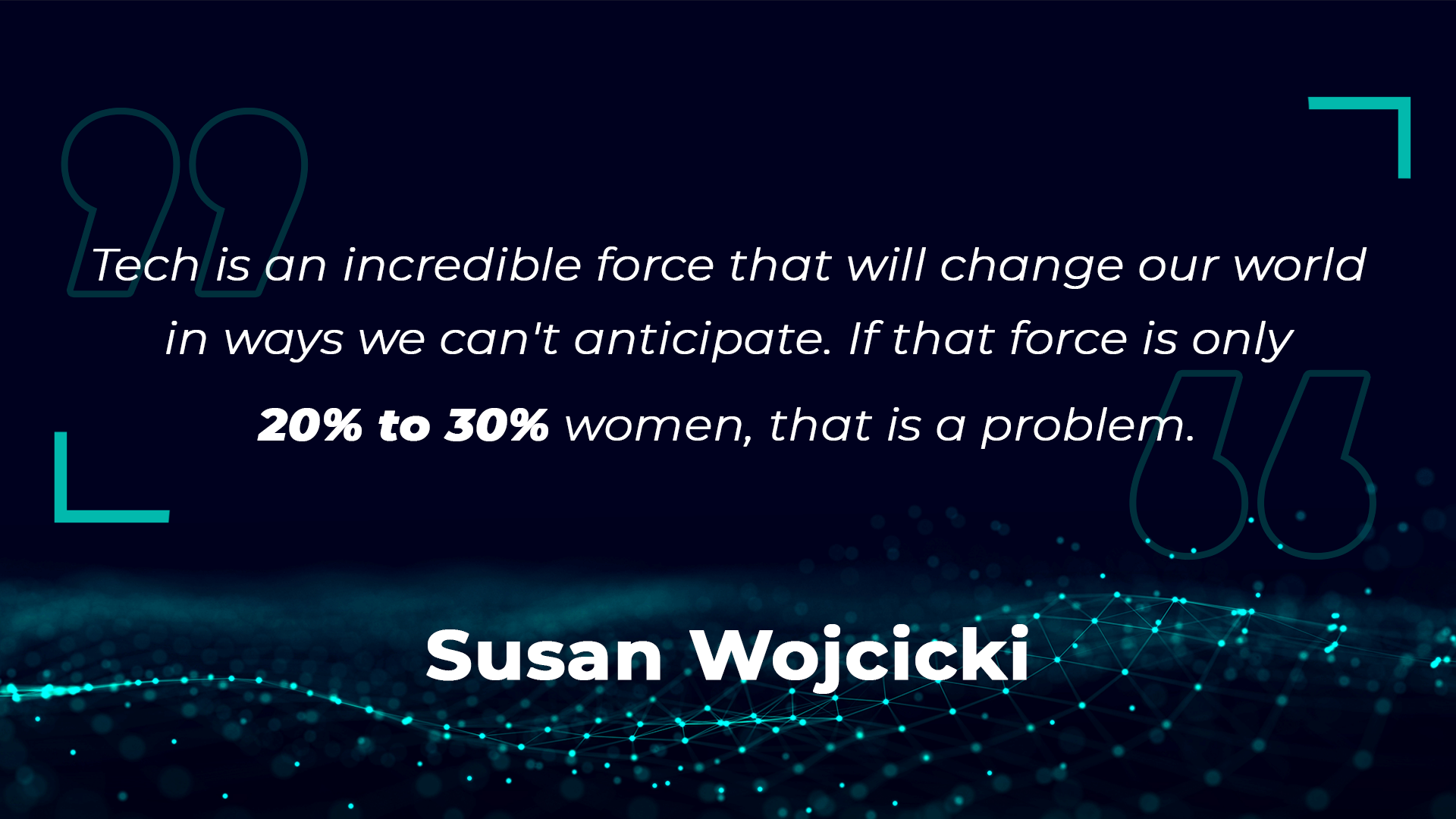The Women Who Changed the Tech World

5 min read
4-1 is not the result of a football match in which some of the greats, like Barcelona, "broke" the weak club from the end of the table. This is the situation in the ICT industry - in which women convincingly lose by 4 point differences from their male colleagues.
However, this has not always been the case.
Until the beginning of the 70’s of the last century, there was a big campaign in America which motivated girls to become programmers. Even Cosmopolitan magazine in its 1967 article "Computer's girls" spoke positively about programming as a vocation.
And today? Today, ICT is an area that, according to research by the European Commission, employs 7.8 million people across the EU. Of that number, the ratio in the labor market in 2019 was 82.1% of men versus only 17.9% of women who were engaged as ICT specialists.
History teaches us that women have made a significant contribution in this area. They are credited with some of the revolutionary discoveries in the ICT industry.
Find out what it's all about!

You know when they say some people lived ahead of their time? That is exactly the case with these ladies.
One of them is the Queen of Software - Grace Hopper, who was the first to find a way to give commands to computers using words, not numbers. Dr. Hopper is a scientist who participated in the creation of the first business programming language - COBOL, on which most of today's computer programs are based. She was also the first person to use the word "bug" to explain errors in a computer system. “Bug” as a term with this use originated when this scientist found a live moth that caused problems in the work of her software.
Have you ever imagined a programmer as a noblewoman in a ball gown?
Well, that's exactly what the first woman programmer looked like. Ada Lovelace, known as the Countess of Lovelace, is considered as pioneer of computer science and programming. She wrote the first algorithm with the goal to be performed by a machine, which is why she is considered the first programmer. The story of Ada becomes even more fascinating when we realize that she came to these achievements in the middle of the 19th century, exactly one hundred years before the first computer was created (1943) for which her notes were extremely important.
Another amazing woman, often called a "human calculator", was Edith Clarke. The first professionally employed female electrical engineer in the United States, a full time professor, but also the first to present her work to the American Institute of Electrical Engineers - all these are the achievements of Edith Clarke. Her most famous contribution to history is the "Clarke calculator" - a graphical device that simplified equations and functions. Besides, the first step towards "smart grid" technology was made, which is with the help of an analyzer of collected data on the electricity grid - an innovative idea of the time.
The career paths of these women have been an inspiration to many girls throughout history, and today, when we talk about successful careers in the ICT field, Susan Wojcicki, the CEO of YouTube, ranks first in almost every list of women in technology. Time magazine described her as "the most powerful woman on the Internet", and in her career, working for Google, she significantly contributed to the development of Google Images and AdSense as the forerunners of the most powerful means of advertising on the Internet.
Second, but certainly no less important, is Sheryl Sandberg - COO of Facebook and the first woman to be part of the Board of directors of this company. By creating an advertising campaign, she enabled Facebook to finally become a profitable company. In addition, she is an outspoken advocate for women to be more aggressive in their pursuit of success in the business world.
Another well-known name is Reshma Saujani, the founder of the non-profit organization Girls Who Code, whose goal is to increase the number of women in computer science.
However, beside these ladies who contribute to technological progress in their own way, the fact that only 37% of technology startups have at least one woman on their board of directors leads to the conclusion that an increase in the number of women in the ICT industry is necessary.
That is why the International Telecommunication Union (ITU) initiated the celebration of Girls' Day in ICT every fourth Thursday in April. The intention is to encourage girls and girls around the world to build their careers, educate themselves and realize their full potential in this field, which is often unfairly considered masculine.

In order to have an impact on the solution of this problem, we work every day on the education, training and employment of women in our company.
Our formula is: more women in ICT = more innovative, stronger and better ICT companies.
Connected Girls, Creating Brighter Futures!
#GirlsinICT


